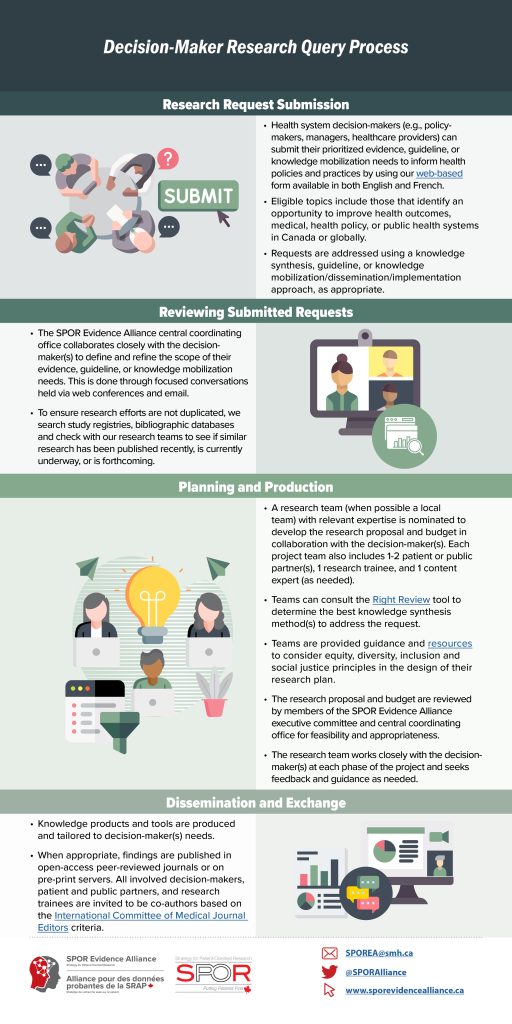Policy-Maker and Healthcare Provider Research Query
Submit Your Request
Are you looking for up to date and high quality scientific evidence to inform a health policy or a practice decision?
The SPOR Evidence Alliance has researchers located across Canada with expertise in a range of health topics who may be able to help address your priorities and needs using the following approaches: knowledge synthesis, guidelines development, and knowledge translation.
You can learn more about the types of requests the SPOR Evidence Alliance investigators have addressed or are currently responding by visiting Our Projects page.
You can tell us about your research needs by completing a set of questions using the English or French form. Feel free to skip any of the questions you are unable to answer at this time.
Note: As a research network we can only support requests for specific research needs. We do not have the expertise or the resources needed to make referrals for clinical services or community programs. We are also not able to provide any medical advice or opinions.
